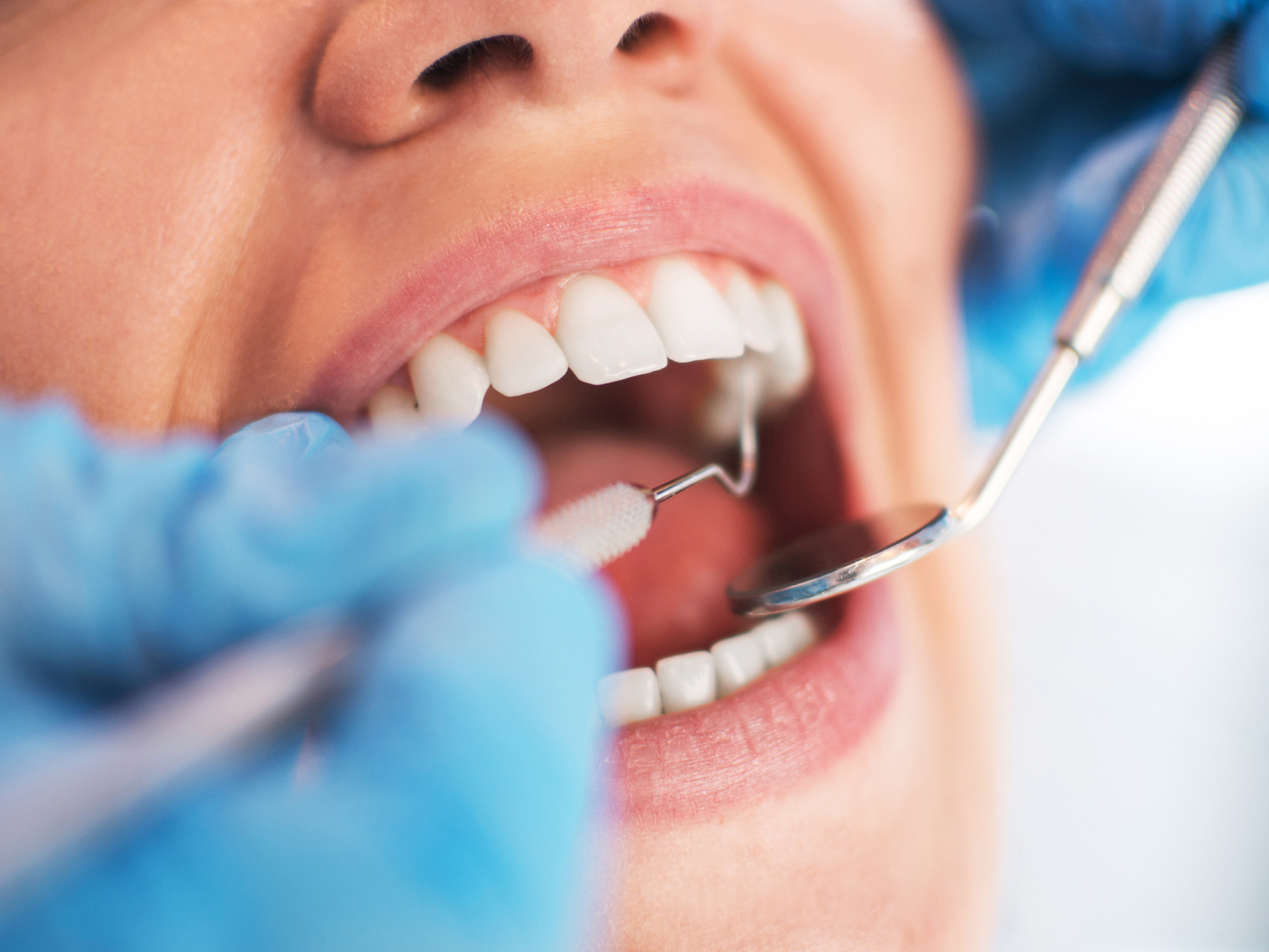Get Easy Health Digest™ in your inbox and don’t miss a thing when you subscribe today. Plus, get the free bonus report, Mother Nature’s Tips, Tricks and Remedies for Cholesterol, Blood Pressure & Blood Sugar as my way of saying welcome to the community!
The bacteria in your mouth could be ruining your brain

When my kids were little, we always had the nightly argument surrounding brushing and flossing their teeth.
I can’t even count how many times I gave them the speech about the importance of taking care of their teeth and gums, and how not taking care of them could lead to gum disease and heart problems.
But that’s not all. Good oral hygiene and dental checkups could save you from cancer, diabetes and kidney disease.
Now, in addition to brushing your teeth for all these health reasons, there’s one more that will make you want to be sure your mouth is as healthy as possible…
Bacteria travel from your mouth to your brain
The trouble all starts with a bacterium known as Porphyromonas gingivalis.
According to the experts, P. gingivalis is the bad actor involved in periodontitis, the most serious form of gum disease and it begins to infiltrate your gums during your teenage years.
While it is not harmful in most people, when its numbers grow too large, your body’s immune system reacts, leading to inflammation, redness, swelling, bleeding, and erosion of your gum tissue.
And, if that weren’t enough, the bacteria can even travel from your mouth into your bloodstream whenever you chew or brush your teeth.
Since previous studies have noted the presence of P. gingivalis in brain samples from Alzheimer’s patients, a team of researchers from the University of Louisville School of Dentistry and Jagiellonian University in Krakow, Poland set out to find evidence that the bacteria may actually contribute to the development of Alzheimer’s disease.
The researchers compared brain samples from deceased people with and without Alzheimer’s disease who were roughly the same age when they died. And, they found that P. gingivalis was much more common in samples from Alzheimer’s patients.
So, they took it a step further…
Using mice, they were able to show that P. gingivalis can move from your mouth to your brain to cause cognitive issues.
Yup, brushing your teeth is definitely not just about your teeth. If you don’t do it well and regularly, the bacteria that cause gum disease could also cause Alzheimer’s.
“Oral hygiene is very important throughout our life, not only for having a beautiful smile but also to decrease the risk of many serious diseases,” said Jan Potempa, Ph.D., DSc, a professor at the University of Louisville School of Dentistry and head of the department of microbiology at Jagiellonian University in Krakow, Poland. “People with genetic risk factors that make them susceptible to rheumatoid arthritis or Alzheimer’s disease should be extremely concerned with preventing gum disease.”
Preserving your memory
To preserve your memory, you have to prevent P. gingivalis from growing out of control.
And, the best way to do that is by brushing and flossing regularly and visiting a dental hygienist at least once a year.
You should also know that if you smoke, you’re at higher risk and your risk also goes up with age, so it’s especially important to take steps to keep your mouth as healthy as possible.
In addition to practicing good oral hygiene, other ways to keep your memory sharp as you age include:
- Feeding Your Brain – If you want to keep your brain functioning optimally, you have to feed it optimally and the best brain food out there is a supplement known as phosphatidylserine or PS. In fact, a multi-university study found that people who took PS achieved a 30 percent improvement in cognitive function, including learning, memory, and recalling numbers, names and faces and rolled back a full 12 years of cognitive decline.
- Staying Active – Daily exercise can postpone or even prevent Alzheimer’s and just 15 to 30 minutes is enough to make a difference.
- Using Your Brain – You’ve probably heard the phrase “use it or lose it” and when it comes to warding off Alzheimer’s and dementia it’s definitely true. Do puzzles, play games, learn a new language or pick up a new hobby. Anything that keeps your brain stimulated can help.
- Avoid Sweets – High sugar diets can contribute to the development of Alzheimer’s so just say no to sodas, candy, and other highly sweetened foods.
Editor’s note: Do you know that poor gums and teeth are linked to the number one killer in America? Not to mention kidney disease… rheumatoid arthritis… Parkinson’s disease… depression… and so much more. Click here to discover America’s Hidden Dental Health Crisis: How to protect yourself and your family from this dangerous public health peril!
Sources:
- Will taking care of my teeth help prevent heart disease? — Mayo Clinic
- Gum bacteria implicated in Alzheimer’s and other diseases — Experimental Biology
- Keep your brain healthy as you age — Kaiser Permanente Washington Health Research Institute














